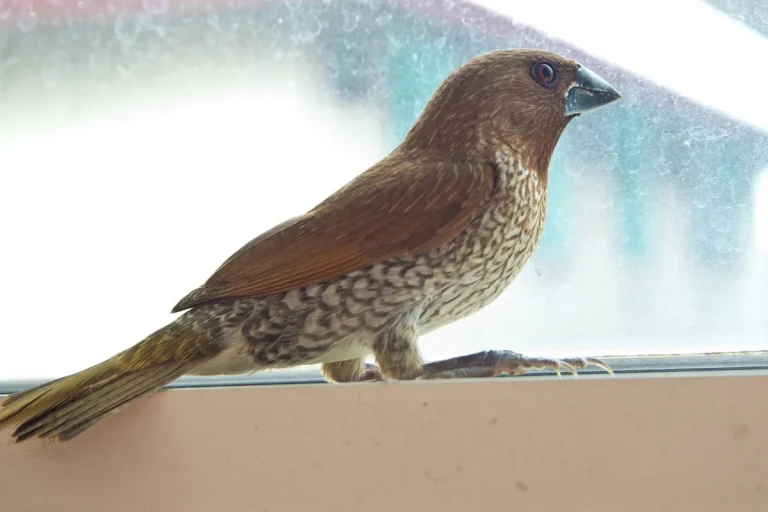Do birds make you feel uneasy or fill you with dread? You’re not alone. For many people, ornithophobia – the fear of birds – can have a profoundly unsettling effect. But could your fear of feathered creatures have a deeper spiritual significance?
If you’re short on time, here’s the quick answer: Ornithophobia often represents an unconscious fear of freedom, independence, or transcendence. Exploring this meaning can lead to spiritual growth. Keep reading to understand more.
In this comprehensive guide, we’ll explore the spiritual and symbolic importance of birds, analyze common dream meanings, and provide actionable tips to help you overcome negative associations.
The Spiritual Symbolism of Birds
Representing Freedom and Transcendence
Birds have long symbolized freedom and transcendence in spiritual traditions around the world. Their ability to fly high into the heavens has made them natural symbols of the soul’s ascent into the spiritual realm.
According to mystic philosopher G.I Gurdjieff, birds represent “a higher level of being” beyond the confines of the earthly world. This sentiment can be seen across cultures.
In Christianity, birds like doves and eagles are used to depict the Holy Spirit. Doves embody peace, love, and blessings from above. Just think of the dove descending at Jesus’ baptism! Eagles represent spiritual vision, strength, and connection to God in the clouds.
Native American spirit guides and totem animals also include majestic birds like hawks and ravens as messengers guiding the soul’s journey.
Whether referring to the flight of the soul towards enlightenment or the presence of winged spirits as divine guides, birds have long offered spiritual inspiration. Their aerial movements remind us to let our spirits soar!
Messengers Between Worlds
Related to ideas of spiritual transcendence, birds are frequently viewed as messengers transporting communication between the earthly realm and the spirit worlds above. For instance, in Norse religion, Odin’s ravens Huginn and Muninn (“Thought” and “Memory”) flew around Midgard gathering news for the god.
And in Ancient Egypt, hieroglyphics and art commonly depict birds carrying prayers to the gods.
In modern mystical thinking, birds continue to be seen as omens, signs, and transmitters of universal wisdom. When we see a cardinal appear in trying times or find a feather on our path, many believe birds send the message: “Hang in there.
The spirit world is with you.” The next time a bird arrives at your window, be open to receiving whatever timely wisdom it may have flown your way!
Totems and Animal Spirits
Specific bird species hold deep spiritual meaning as totems and animal spirits. In Native American tribes, totem animals serve as sacred guardians and guides, teaching us life lessons and revealing inner truths.
According to spiritual astrologer Kelly Surtees, identifying with a particular bird totem “reflects personality attributes and aspects of our deeper soul self.”
For example, owl totems represent intuition, vision, and connection to inner wisdom. Cardinal totems signify passion, creativity, and vibrancy—like their bright red feathers. Dove totems teach tenderness, peacefulness, and open-heartedness. Hawks grant clarity just like their razor-sharp sight.
And hummingbirds model lightness, joy, sweetness, and the value of slowing down to “smell the roses.”
Discovering a winged animal spirit guide grants unique insight into our life’s purpose. By tuning into the spiritual qualities of birds through animal totems, we better understand our innermost truths.
Dream Interpretations and Significance
Birds as Symbols in Dreams
Birds are common dream symbols that can have diverse meanings. Often, birds in dreams represent thoughts, ideas, or messages from our intuition or subconscious mind. For example, a dove may indicate peace of mind, while a predator bird like an eagle could suggest power or ambition.
Some dream analysts believe specific bird sightings may have the following interpretations:
- Owls represent wisdom, insight, and truth.
- Hawks or eagles symbolize focus, independence, and overcoming challenges.
- Doves signify peace, love, gentleness.
But the context and your feelings matter too. Were the birds acting threatening or friendly? Did they speak or deliver a message? Pay attention to these extra details as clues for interpreting the symbolism.
Common Bird Dream Meanings
Here are common meanings associated with some popular bird dreams:
| Dream | Potential Meaning |
| Flying bird | A desire for freedom or transcendence of limits |
| Baby birds | New ideas or projects being nurtured |
| Talking bird | An intuitive message from your inner self |
| Bird’s nest | A safe space or comfort zone |
| Bird attack | Feeling threatened by a person or situation |
But if nothing comes to mind related to the interpretations above, look for your own symbolism based on what birds represent to you personally (like wisdom, fragility or aggressiveness).
When Bird Dreams Become Nightmares
While pleasant bird sightings represent positive concepts, birds can also stir up fear or unease in dreams. For example, dreaming about being trapped in an enclosure full of chaotic swarming birds or screaming ravens likely signals anxiety or loss of control in your waking life.
Highly threatening attacks by aggressive predator birds like vultures likely represent intimidating people or situations causing you duress. Examine what current relationships or challenges feel overbearing or perilous in waking reality.
Figuring out what the attacking birds symbolize can help uncover ways to better cope with strained relationships or daunting circumstances. You may realize certain fears or worries feel bigger than they are (like the imposing bird dwarfs you).
Finding support may also help reestablish calm and personal power.
In the end, pay attention to details about behavioral patterns and emotional responses for best interpreting feathered dream symbols. Over time, compiling clues yields deeper insight into guiding messages emerging from the unconscious mind. 😊
Strategies to Overcome Fear of Birds
Identify the Root Causes
To overcome a fear, it’s important to understand where it comes from. Think back to any early experiences you may have had with birds that sparked discomfort or anxiety. Were you attacked by a territorial bird when you were young? Did you see a scary movie featuring menacing birds?
Identifying traumatic triggering events can provide insight.
Examine any irrational thoughts you have around birds. Do you catastrophize thinking every bird wants to peck your eyes out? Uncovering distorted thinking patterns allows you to then challenge and replace them with more balanced thoughts.
Practice Mindfulness and Grounding
When encountering a bird, anxiety quickly spins out of control. Before panic sets in, practice mindfulness by tuning into your senses. Notice five things you see, four things you feel, three things you hear, two things smell, and one thing you can taste.
This mental diversion grounds you in the present moment.
As your mindfulness skills strengthen, intentionally shift your focus to observing the bird’s behaviors, sounds, markings, and movements in a nonjudgmental way. This reduces perceived danger and begins reshaping negative associations.
Start Small with Exposure Therapy
Avoidance only reinforces a phobia. To desensitize yourself, begin facing your fear in small, manageable steps. For example:
- Look at cartoon images of birds.
- Watch bird documentaries on mute to avoid scary bird calls.
- Observe birds calmly standing at a distance in an enclosed outdoor space you feel safe in.
- Toss birdseed and watch local birds gather to feed from inside through a window.
- Sit outside and allow a few minutes of direct bird interactions in closer proximity.
With each success, gradually challenge yourself for longer durations. Having a trusted friend accompany you can ease this process. Over time, increased exposure in anxiety-provoking situations teaches your nervous system birds truly pose no real danger, gradually weakening your phobic response.
If self-help strategies yield little progress, consider consulting a therapist trained in treating phobias. With their guidance combining exposure techniques with relaxation training, you can break free from the prison of your fear of birds for good!
Conclusion
While ornithophobia can be a distressing and limiting condition, uncovering its spiritual meanings can lead to growth. By recognizing birds as symbols of freedom and transcendence, analyzing your unconscious associations, and systematically facing your fears, you can eventually overcome negative reactions.
Rather than representing threats, birds are winged guides on our life journeys. Next time you encounter one, consider the message it might bring from the realm of spirit.






